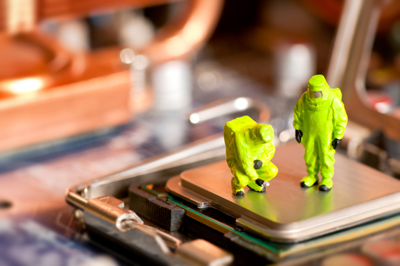1. Why use binary
In our everyday lives, we use a number system that uses the numbers 0, 1, 2, 3, 4, 5, 6, 7, 8 and 9. This is called a 'Denary System'. The denary system has 10 separate numbers.
However, inside a computer, the CPU is made up of millions of tiny switches that can only be in one of two states, either 'ON' or 'OFF'. While the processing of data is taking place, the switches will alternate between these two states.
A denary counting system is not well-suited to this type of work. So instead we use a binary counting system, where the only numbers are 1 and 0. A 1 represents a switch in the CPU that is ON and 0 represents a switch that is OFF.

This allows us to describe the state of the CPU numerically. This section will discuss how we represent the comparison operations that a CPU makes - a topic called 'binary logic'.
